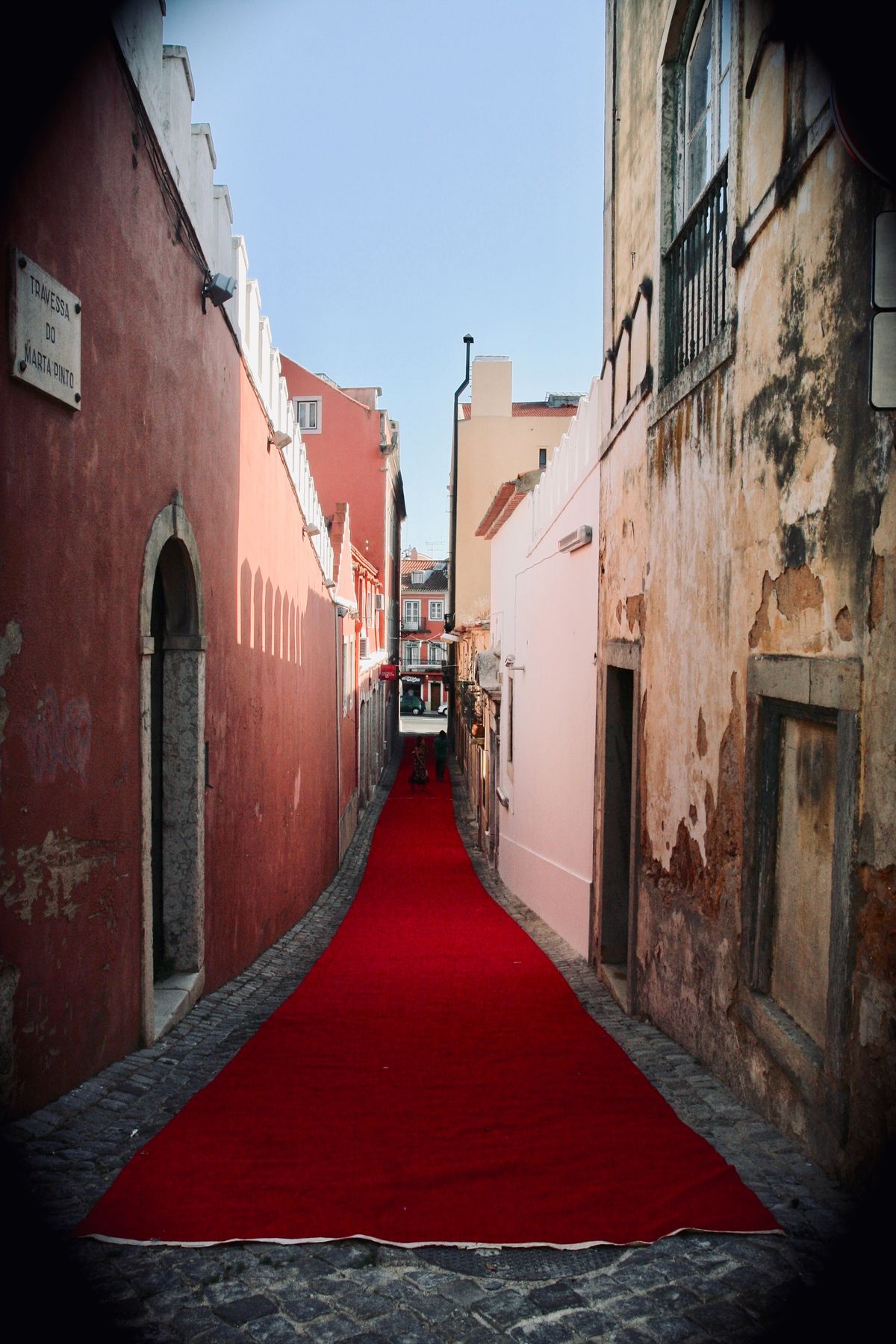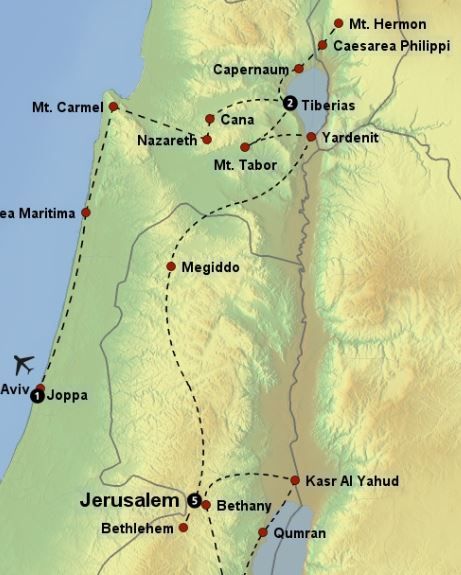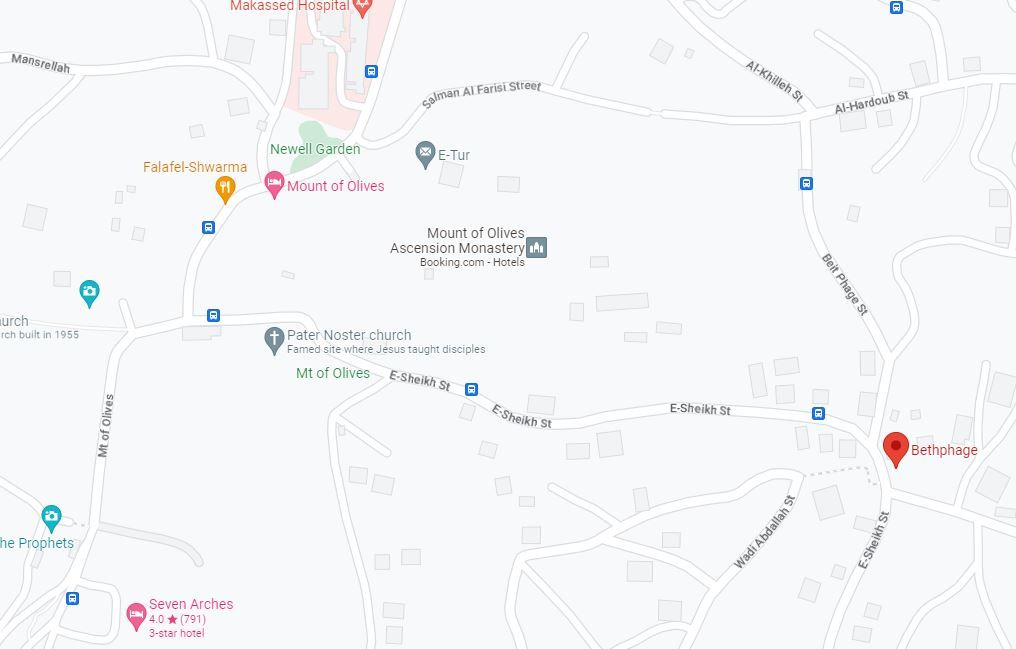Palm branches and Cloaks

Matt 21:1-11 (KJV)
And when they drew nigh unto Jerusalem, and were come to Bethphage, unto the mount of Olives, then sent Jesus two disciples, Saying unto them, Go into the village over against you, and straightway ye shall find an ass tied, and a colt with her: loose them, and bring them unto me. And if any man say ought unto you, ye shall say, The Lord hath need of them; and straightway he will send them. All this was done, that it might be fulfilled which was spoken by the prophet, saying, Tell ye the daughter of Sion, Behold, thy King cometh unto thee, meek, and sitting upon an ass, and a colt the foal of an ass. And the disciples went, and did as Jesus commanded them, And brought the ass, and the colt, and put on them their clothes, and they set him thereon. And a very great multitude spread their garments in the way; others cut down branches from the trees, and strawed them in the way. And the multitudes that went before, and that followed, cried, saying, Hosanna to the son of David: Blessed is he that cometh in the name of the Lord; Hosanna in the highest. And when he was come into Jerusalem, all the city was moved, saying, Who is this? And the multitude said, This is Jesus the prophet of Nazareth of Galilee.
Today is Palm Sunday throughout the Christian World. The day when we turn our minds back to Jesus's triumphant entrance into Jerusalem, riding on the back of a donkey, cheered on by the crowds as they shout out,
“Hosanna to the Son of David!”
“Blessed is he who comes in the name of the Lord!”
“Hosanna in the highest heaven!”
Picture the scene, the crowds are all around Jesus, they’ve waving palm branches in celebration, as they lay their cloaks on the ground to carpet the road before him.
A bit like how we roll out the red carpet for important people today. But here the people use their cloaks to carpet the road before Jesus as he rides into town on a lowly donkey.
But Jesus is much, much, more than a celebrity.
Back in chapter 16, up in the town of Caesarea Philippi, Jesus asked the disciples "Who do people say the Son of Man is?" The disciples answered saying that the crowd thought he was a prophet. But Peter answered, "you are the Messiah". Hearing this, Jesus explained that the time had come for him to die and that they had to go to Jerusalem. And so, his final journey begins as they set off walking to Jerusalem, a distance of over 150 miles.

That’s a long way to walk, but along the way, Jesus preached, taught, healed the sick, cast out demons, as he proclaimed the good news,
“the Kingdom of Heaven is at hand!”
Jesus and the disciples walked until they arrive at the village of Bethphage, it's just outside Jerusalem.

At this point, Jesus stops, and he stops for a very specific reason. He’s done walking, and he sends two disciples to go into the village and collect a donkey that he has waiting for him, Jesus tells them;
“Go to the village ahead of you, and at once you will find a donkey tied there, with her colt by her. Untie them and bring them to me. If anyone says anything to you, say that the Lord needs them, and he will send them right away.”
Notice that Jesus doesn’t tell them to get donkeys all the disciples, there’s no need, they can walk, and the donkey is just for him. And to be perfectly honest, Jesus doesn’t really need a donkey either, he’s just outside the city on the Mount of Olives, so he could have easily walked the last bit of the journey.
So why did Jesus stop to get a donkey to ride on? Why, because it was essential,,, Jesus was fulfilling prophecy. He wants everyone to fully understand exactly who he is, Finally, Jesus is ready to publicly reveals his true identity to everyone. No more secrecy, no more “See that you tell no one”. The time has come for everyone to know that Jesus is the Messiah, the King.
In verse 4 Matthew tells us that the donkey is to fulfill a prophecy,
“This took place to fulfill what was spoken through the prophet Zechariah”.
Zechariah wrote his prophecy almost 550 years before the birth of Jesus, And here Matthew tells us that Jesus was now fulfilling it,
It’s so important that Matthew even quotes Zechariah in v5.
“Say to Daughter Zion,
‘See, your king comes to you,
gentle and riding on a donkey,
and on a colt, the foal of a donkey.’”
Zechariah begins his prophecy by telling Jerusalem to rejoice. (9:9)
Rejoice greatly, Daughter Zion,
Shout Daughter Jerusalem
And that’s exactly what we see the people doing.
But here also it's perfectly clear who is proclaiming Jesus as the Messiah and King. It’s Jesus himself. This is a big change because throughout his ministry Jesus has been almost secretive about who he is. Revealing his identity slowly, firstly to the disciples, and then bit by bit, through the signs and many wonders that he worked, he lets people realise for themselves who he is.
And Jesus is happy for people to know his identity, look at Verse 7,
They brought the donkey and the colt and placed their cloaks on them for Jesus to sit on
Picture the joyful scene, the crowds waving palm branches, laying their cloaks on the path making a royal carpet as they cry out,
“Hosanna to the Son of David!”
“Blessed is he who comes in the name of the Lord!”
“Hosanna in the highest heaven!”
And in this adoration, Jesus acknowledges his true identity, “Yes this is who I am”.
Jesus is the King, and the crowds in their joy proclaim him as King.
“Hosanna” they quote scripture from Psalm 118
Blessed is he who comes in the name of the Lord.
From the house of the Lord we bless you
V8 The Crowds spread their cloaks on the road.
But what about laying their cloaks on the road to carpet his path, was this normal, was this something that had been done before?
In 2 Kings 9, we read about Elisha sending a prophet to anoint the army commander Jehu as King over Israel. The prophet goes to Jehu, takes him into an inner room, and anoints him with olive oil, proclaiming him King over Israel. When Jehu re-emerges, his men ask if everything ok?
In verse 12 we read
Jehu said, “Here is what he told me: ‘This is what the Lord says: I anoint you king over Israel.’”
13 They quickly took their cloaks and spread them under him on the bare steps. Then they blew the trumpet and shouted, “Jehu is king!”
They took off their cloaks and spread them under him on the bare steps.
And here on the mount of olives some 850 years later, once again cloaks are laid on the road before the Messiah as they cry out, Hosanna, which means “Save us”
That was the first Palm Sunday, the people when the people recognised Jesus as their King, the Messiah, the saviour promised by God.
Jesus was the people of Israel’s rightful King, their Prophet, and their Great High Priest who was sent by the Almighty to save his people and to save the entire world, including all of us.
That was Palm Sunday, a day when Jesus rode into Jerusalem
gentle and riding on a donkey,
and on a colt, the foal of a donkey
a day of great joy and celebration, with the crowds before him and behind him, waving palm branches, the King is finally here.
No more secrets, no more hiding, Jesus is King, gentle, and riding on a donkey.
The crowd is overjoyed, the Messiah is here, the King has arrived, and with great rejoicing, they believe the time has come when they would be freed from the oppression of their Roman overlords.
Yet Jesus rode on a donkey, he didn’t arrive on a war horse, which isn’t much of a threat to anyone. Jesus’s arrival was humble as he rode in on a lowly donkey.
This isn’t what the people were expecting, something wasn’t just right, because Jesus’s arrival in Jerusalem was not as a man of war, but as a servant, a servant King.
Remember he told the disciples that whoever would be great among you, must be your servant. And that’s Jesus’s point, he came to Jerusalem as God’s King to serve. Riding a donkey, not a war horse, because he didn’t come to bring war, he came to bring peace, God’s peace, and God’s salvation.
The crowd that is all around Jesus is the crowd that paraded into Jerusalem with him, but the question here is, what will the people in Jerusalem make of the arrival of this King?
Verse 10 tells us,
When Jesus entered Jerusalem, the whole city was stirred and asked, “Who is this?”
Jerusalem is stirred up, shaken, with shockwaves spreading through the city almost like an earthquake, as they ask, who is this?
Verse 11 tells us.
The crowds answered, “This is Jesus, the prophet from Nazareth in Galilee.”
But this isn’t an understatement; this is highly significant.
Because the crowd doesn’t describe Jesus not as “a prophet” but as “the prophet”
This is significant, remember Moses the great prophet of the Old Testament who led the people of Israel out of Egypt. At the end of his life, we read in Deuteronomy that,
the lord said to Moses, I will raise up for the people a prophet like you from among their brothers. I will put my words in his mouth and he shall speak to them all that I command him. And whoever will not listen to my words, that he shall speak in my name, I myself will require it from him.
From that day the people of Israel had been waiting and longing for “the prophet” to arrive.
God did send them many prophets, Zechariah, Isaiah, Jeremiah, Elijah, Elisha, and many more. but none of these proved to be “the prophet” the Messiah, and now the people are asking, could this be the one? Is Jesus from Nazareth “the prophet”, the Messiah, God’s King, the one that we’ve been waiting on?
And the question for us today is simply, who is Jesus of Nazareth to us, is he our King, our great high priest? And most importantly have you recognised him as Messiah and like the people back then cried out in joy “Hosanna”?
Have a great day, and a wonderful Holy Week, God bless,
Trev.